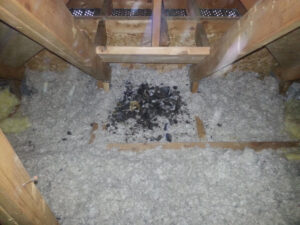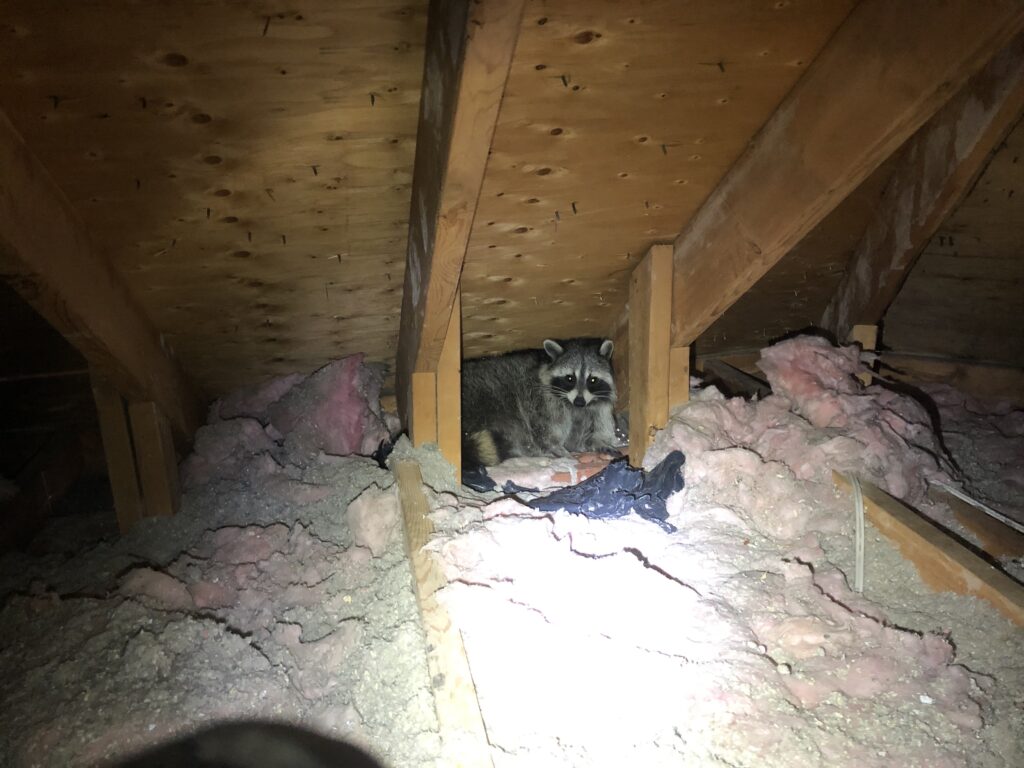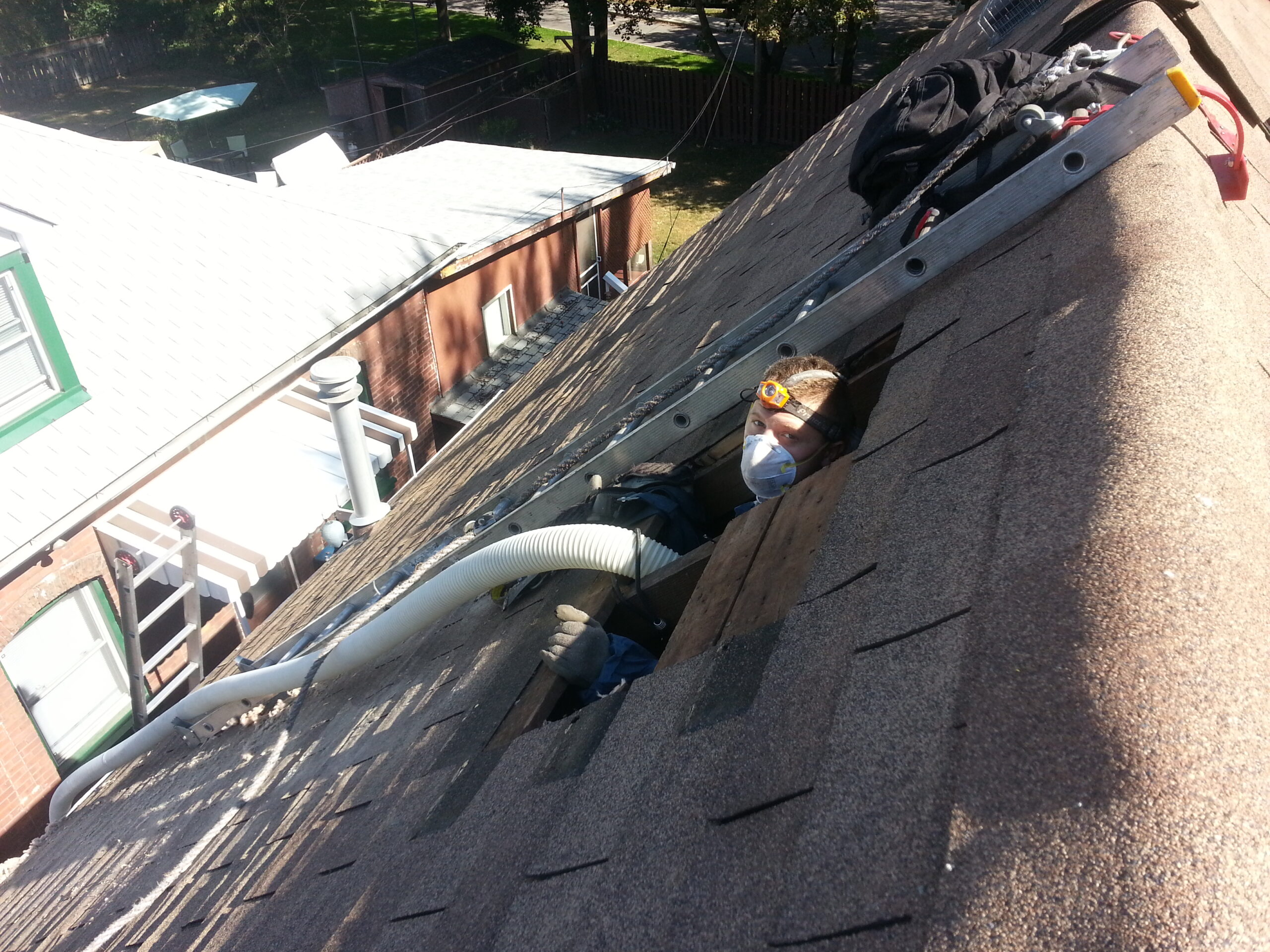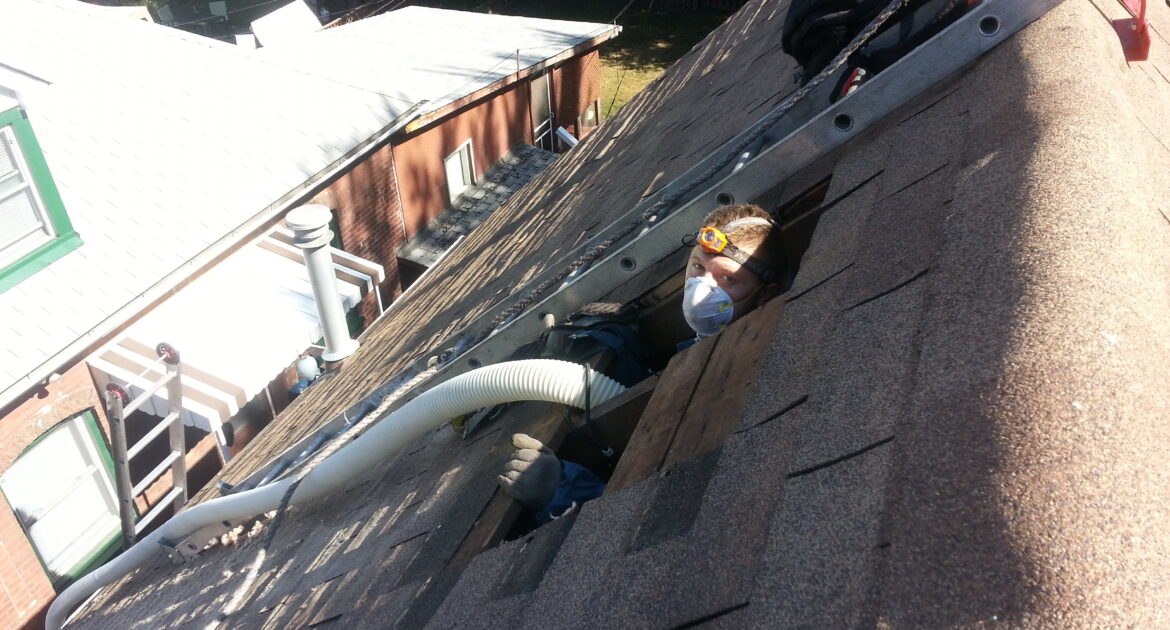With their adorable masked faces, raccoons are a favourite wildlife species for many residents of the Durham Region. As cute as they may look, however, these furry bandits leave a mess of raccoon poop behind them in the places they frequent each night. If raccoons live on your property, then you must face the problem of dealing with raccoon urine and feces.
Should I Be Worried About Raccoon Feces in My House?
Once you find raccoon poop, you are likely to keep finding more. This is because groups of raccoons select a certain area as their latrine and use it night after night. This is a similar behaviour to cats using kitty litter. So once they have selected a spot, they will return daily to use the bathroom there.
The following are some frequently asked questions about raccoon poop that will help you identify whether you have a raccoon problem.
What Does Raccoon Poop Look Like?
When you first see raccoon feces, you might think it came from a small dog. It is 5 to 8 cm long, shaped like a hot dog, and dark in colour. However, sometimes it can appear like a blob, with no definite shape. One characteristic to look for is seeds and other pieces of undigested food that would not be present in the droppings of a dog or other predator.

How Bad Does Raccoon Poop Smell?
Raccoon droppings have a distinct odour that is hard to describe to someone who has not experienced it. Some people describe it as dog poop mixed with cat urine and rotting fruit. The fact that many individual raccoons will use the same latrine makes the smell even stronger.
How Long Is Raccoon Feces Dangerous?
Raccoon feces carry diseases that humans can catch. Unfortunately, the microorganisms that cause these illnesses continue to live in old, dry poop for weeks or months. Some, such as salmonella bacteria, simply go into a dormant state until they move into a new host.
Diseases in Raccoon Droppings
1. Raccoon Roundworm
Raccoons can excrete roundworm eggs through their droppings. These eggs are very light and can become airborne. Humans can easily inhale these eggs and become infected. After someone swallows the eggs, the eggs hatch into larvae that move to different parts of the body. The infection can cause serious illness within a week.
Raccoon roundworm can be fatal if the victim does not receive medical treatment. It can affect the central nervous system, eventually impairing important organs, including the brain. The symptoms of roundworm include:
- Fatigue
- Loss of muscle control
- Lack of coordination
- Blindness
- Coma
2. Giardiasis
Giardiasis is an infection that raccoons and many other animals transmit. Raccoons that carry this organism in their digestive tracts contaminate water, soil, and any other surface that their feces touch. Humans who accidentally ingest the droppings can get sick. The following are the symptoms of giardiasis:
- Nausea
- Abdominal cramps
- Diarrhea
- Severe dehydration
3. Leptospirosis
Leptospirosis is a bacterial infection that raccoons can spread to humans and other animals through their urine and droppings. If you have an open cut or wound, and you have come in direct contact with raccoon urine or other secretions, you may come down with the disease.
The symptoms of Leptospirosis include the following:
- Nausea, vomiting, and diarrhea
- Severe head and muscle aches
- High fever
- Anemia
- Meningitis
- Kidney and liver failure
4. Salmonella
When contracted through food, people usually refer to salmonella as food poisoning. However, raccoon droppings may also contain salmonella bacteria. Humans contract this infection through ingestion when they unintentionally transfer the microorganisms from their hands to their mouths.
Salmonella poisoning can lead to these health problems:
- High fever
- Vomiting
- Severe diarrhea
- Abdominal cramping and pain
5. Rabies
Rabies is a fatal disease that any mammal can catch. However, raccoons are one of its most common carriers. The virus spreads through contact with a raccoon’s saliva. Therefore, it is very important to stay alert if a raccoon has bitten or scratched you.
Watch for the following clues that a raccoon may be rabid:
- Stumbling as if drunk
- Frothing from the mouth
- Acting aggressively
- Attacking inanimate objects or pets

How To Keep Raccoon Droppings or Urine From Infecting You
If you know there are raccoons in your neighbourhood, here are a few simple things you can do to keep yourself safe:
- Never feed raccoons
- Wait to put garbage out until the morning of trash collection day
- Clean grills immediately after using them
- Use compost bins made of locking metal, rather than wire
- Don’t touch raccoon feces with your bare hands when cleaning up latrines
- Wear gloves when touching areas in your yard that smell like raccoon urine
Furthermore, here are some ways to avoid raccoon conflicts with your pets:
- Bring your pet’s food bowls indoors at night
- Keep pets inside after dark
- Lock pet doors before bed so that raccoons cannot come in
- Keep your pets’ vaccinations up to date
What Should I Do If I’ve Touched or Eaten Feces?
Sometimes very small children will eat raccoon poop. Most often, however, they simply neglect to wash their hands before eating. If you or your children have touched soil where raccoons have been, clean your hands thoroughly with antibacterial soap.
It is also important to monitor yourself for symptoms of illness in the future. If you start to feel sick, recalling that you handled raccoon waste may help medical personnel narrow down your exact ailment. Let a doctor treat you for roundworm or other infections, rather than trying home remedies.
What If a Raccoon Bites Me?
If a raccoon bites or scratches you, you should seek medical attention right away. Your medical provider will then report the incident to Public Health. If your pet has an encounter with a raccoon, then call your veterinarian and also report it to the Public Health Veterinarian.
There is a human vaccine for rabies, but most doctors only recommend it to wildlife professionals who handle wild animals on a regular basis. However, you should always vaccinate cats, dogs, and ferrets to protect them against rabies. Also, consider vaccinating your dogs against leptospirosis.
Should I Clean Up Raccoon Feces or Leave Them Alone?
If you think there’s a risk of a person or pet coming into contact with the feces, clean the area. If you don’t clean feces in the attic, raccoons are likely to come back and use the site again and again. The smell may also attract other types of animals such as squirrels or mice, increasing your wildlife problems.
Proper raccoon removal, disinfection, and other required methods require someone knowledgeable and experienced with what to do when handling raccoons. Raccoons and their wastes are more than a simple nuisance, so do not cut corners and gamble with the health of your family. It is always best to take care of the matter professionally.
Skedaddle Knows How To Disinfect Raccoon Feces
The technicians at Skedaddle Humane Wildlife Control have access to the proper equipment needed to sanitize an area where raccoons have been living. Here are the steps we take to clean up a soiled attic:
- Remove piles of feces and ruined insulation using a high-powered vacuum
- Replace any wooden beams that have become rotten due to soaking in urine
- Disinfect and deodorize the attic area
- Install environmentally friendly and wildlife-proof cellulose insulation
Don’t take a chance on becoming sick from raccoon feces. Contact Skedaddle Humane Wildlife Control of Durham by phone for a home assessment today.





